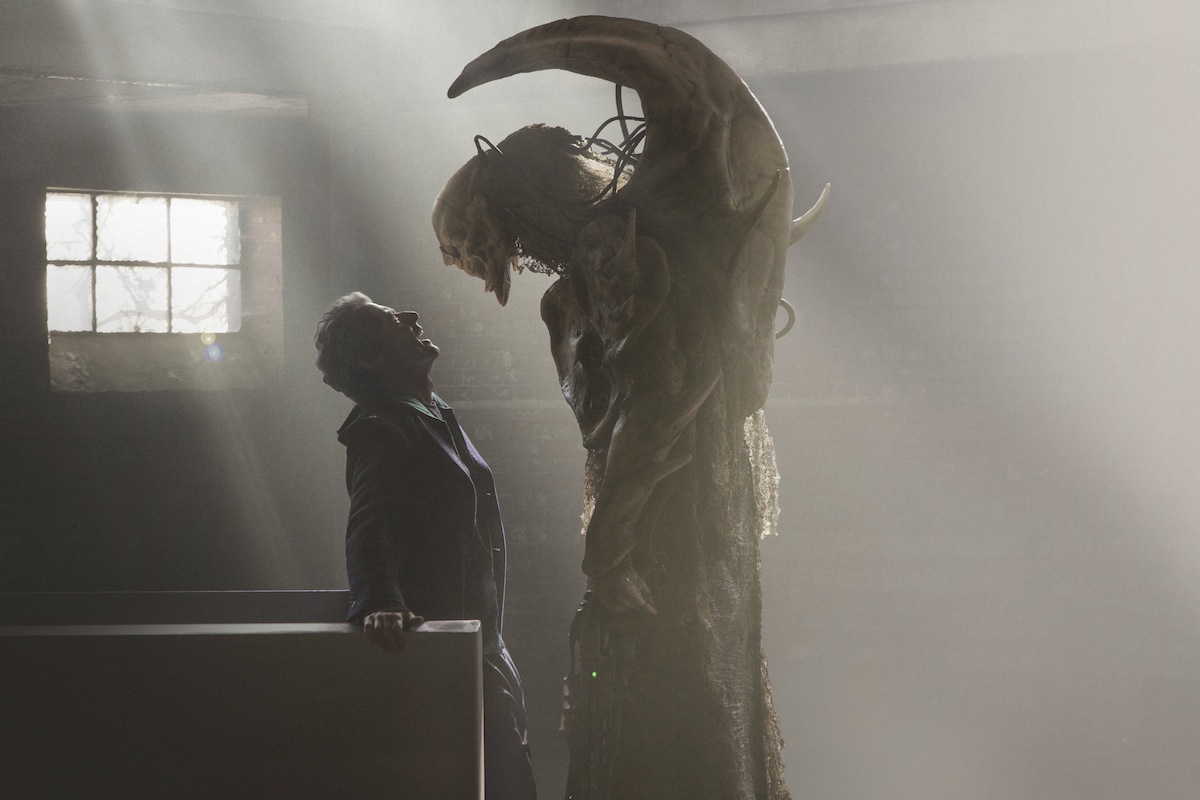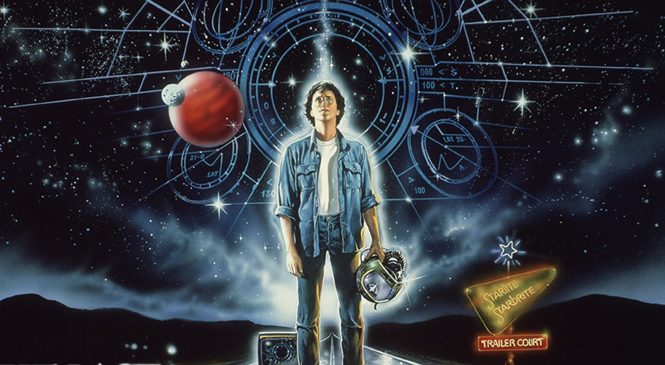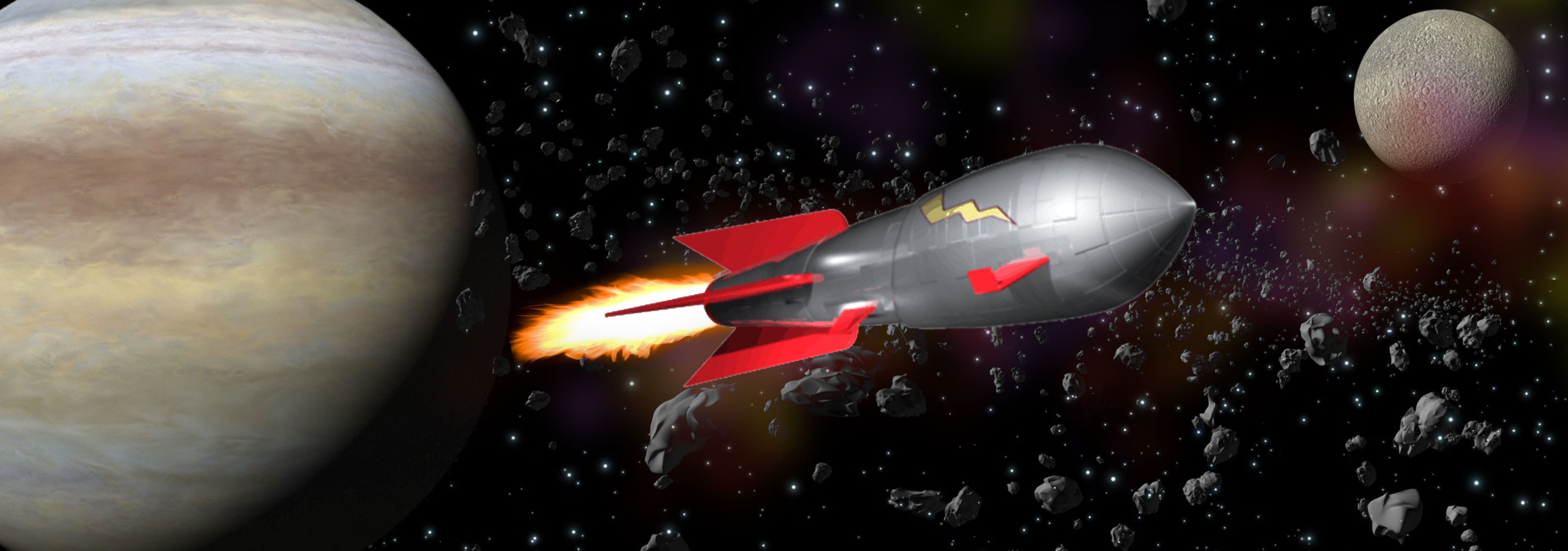DOCTOR WHO: Mr. Harvey Wades Into the Flood

I want to just praise this episode, because there are so many great moments here, but I… have a few issues.
First, let’s go obvious: Not enough Fisher King.
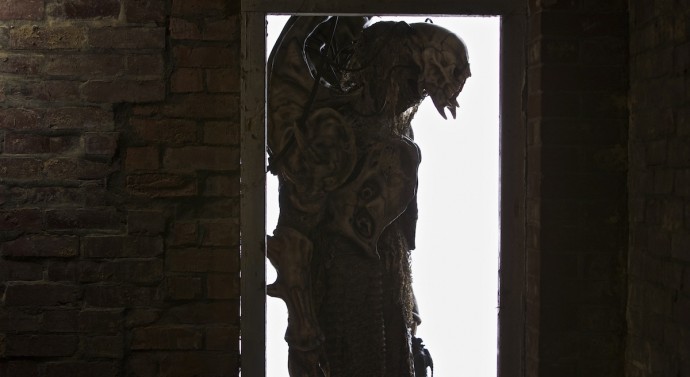
For all the of the great dialogue between the Doctor and the Fisher King, and the return of Whithouse’s deconstruction of the Doctor, the King appears for only a few moments of screentime before his rather fun demise, and for all the buildup, both in-show and in the promotional materials for this two-parter, that was a disappointment. And, for all the impressive look of the character, he moved like, well, a guy in a costume.
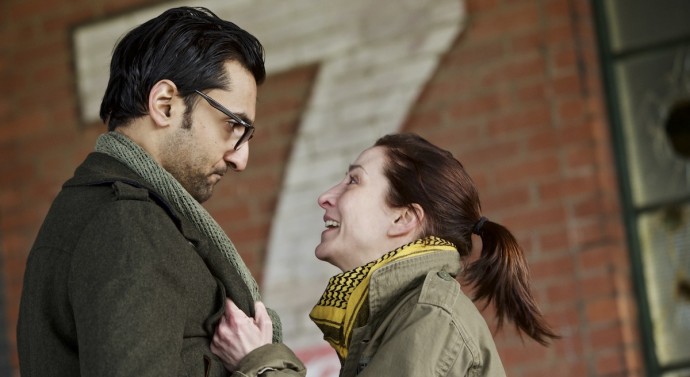
Second, let’s go romantic: Cass and Lunn make sense, and I think a lot of people saw that coming, but Bennett and O’Donnell? Where did that come from? It felt not at all organic, even if it did lead to the nice bit at the end where Bennett pushes Lunn to say the words he regrets never saying. And am I the only one who felt like O’Donnell’s death scene was just… off? And that the splitting-up bit existed just to get O’Donnell killed?
And that’s it. Issues over. Seriously, this was a good one, and with our first two two-parters done, a really solid opening to the 9th Series.
Welllll, OK. Maybe a couple of issues, but they fold into the good stuff, so we’ll touch on those as we move through this.
From the opening — and its 4th wall-breaking and Capaldi’s riff on the theme music — to the look on the Doctor’s face when he sees that Clara gets the Bootstrap Paradox, Toby Whithouse has written another interesting examination of the Doctor and his Companion(s) strength and weaknesses. I am reminded most of his “The God Complex” and its peeling away at the hero-worship of Amy for the Doctor, and Rory’s confrontation and disillusionment with him. There, Rory throws the dangers of life with the Time Lord in his face, and he’s right, while the Doctor himself pulls the curtain back on his own desire to be loved and, for lack of a better term, the subject of some hero-worship. The icing on that cake was the Minotaur comparing the Doctor’s own bloody past to its own.
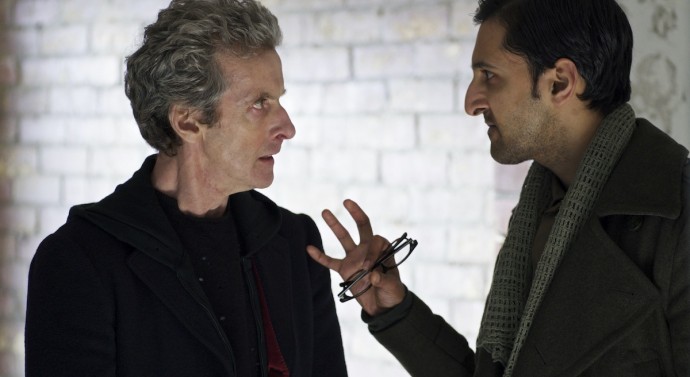
Here, we get the hero-worship of O’Donnell for the Doctor, but that can’t save her life, and prompts Bennett to confront the Doctor’s own manipulation of the situation. Like Rory, Bennett is right: The Doctor knowingly puts people in danger and that can, and does, get them killed. And while the themes are similar, this isn’t a rehash by any stretch, but instead an acknowledgment that for all that the Doctor is the hero of our tale, his flaws are not exactly hidden.
Where things get really interesting is when Clara’s mask slips, and we see just how much she is still shattered by Danny’s death, and how much she’s become dependent on the Doctor and travel in the TARDIS to keep herself together. She says herself that the Doctor has become essential to her, and given her “something else to be”, and the blatant selfishness of her response is both tragic and very, very human. Destroy all of time and space, but don’t leave me alone. Combine that with the Doctor-ish traits of ruthless pragmatism she’s picked up and embraced, and I’m joining the chorus of those who think that Miss Oswald is leaving the show in a box. And not a big blue one.
I mentioned last week that there are some divisions amongst the fans of the show when it comes to Whithouse, and I think this peeling back of the characters may be the cause. Whithouse shows some of the inner-life of our heroes, and that includes their flaws. The Doctor has been putting people’s lives at risk and getting them killed since the show started, but it’s only been the last few years that have seen that commented on in-show so bluntly, and Companions have been changed and damaged by their travels with the Doctor since the beginning as well. How could they not be? Clara is just the latest, and perhaps the most broken by the events of her time in the TARDIS.
The relationship between the Doctor and Clara, and the performances of Peter Capaldi and Jenna Coleman, turn out to be the core of the episode, and that’s how it should be. They need each other, they love each other, and they are not necessarily all that good for each other.
Relationships turn out to be the whole episode, actually. While the O’Donnell/Bennet love-thing seems to be out of left field, the other relationships are all quite interesting.
Consider the TARDIS/Doctor relationship: When the Doctor tries to break the Rules of Time, the TARDIS steps in to make it clear he can’t. The Old Girl knows that the no matter how the Doctor feels, it’s the wrong move, and She steps in to save him from himself.
Consider Cass and Clara: Cass sees all too clearly that Clara has become too much the pragmatist, and that she is a danger to the man Cass loves, and she calls her out on it. Cass, while not admitting that she loves Lunn, kept him from going inside the ship because she wanted to protect him, even if she didn’t understand why. (This is actually another quibble, by the way. Cass makes quite a point of keeping Lunn away from the symbols that make everyone else a target of the Ghosts… so much so that I suspected that Cass was more than she seemed last week. We’re missing a moment here, where we see that Cass’ love for Lunn and fear for his safety is what saves him.)
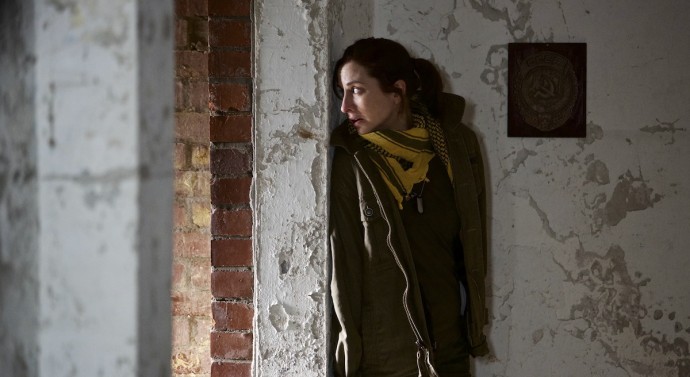
Consider O’Donnell and the Doctor: Gah! I wanted O’Donnell to live and become a new Companion! Curse You Moffat!!! Curse Yooooouuuuuuu!!!!
OK, I’m kidding here, but considering the — completely bizarre as far as I’m concerned — fan outcry for Shona from “Last Christmas” becoming a Companion, I wanted to throw in on calling for a random guest-star to join the TARDIS crew. Still, I did really like the character, and having a Companion that actually knows more about the Doctor’s future (The Minister of War? Please… tell me more.), and is Osgood with anger issues? YES PLEASE. And I really loved her “It’s bigger on the inside” moment.
Ah well.
Then there’s the Fisher King.
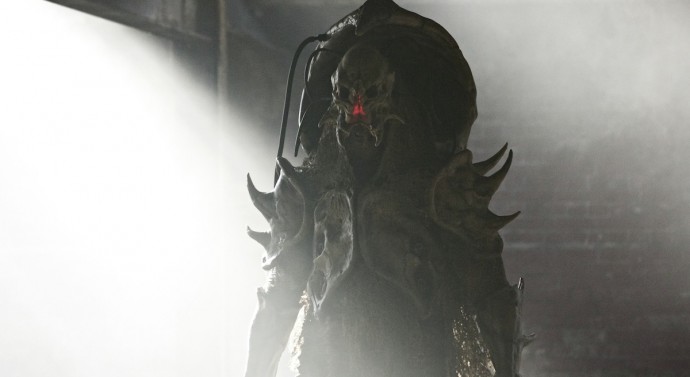
“Time Lords… cowardly, vain curators who suddenly remembered they had teeth and became the most war-like race in the galaxy.”
His short time on screen and his confrontation with the Doctor is quite interesting for what it reveals about the larger Universe’s view of the Time Lords, or at least what the Fisher King’s view is. Interestingly, the Fisher King can tell immediately that the Doctor is a Time Lord, and the contempt in which he holds the Doctor’s people and the Doctor himself is palpable, and of course that’s only to be expected, as the Time War’s effects reached far beyond Gallifrey and the Daleks. One wonders the reaction when Gallifrey truly does return, and one suspects it will be far worse than we have been shown so far.
It is a great scene by the way, the back and forth between the Doctor and the Fisher King. It is marred slightly by the ease in which the King is deceived, but he’s also obviously incredibly arrogant, and that is always a liability. He does die well. Facing the exploding dam and the rushing water, he doesn’t flinch or try to run, so at least he goes out well.
Oh, and hey… did you know that the voice of the Fisher King was performed by Peter Serafinowicz? That would be the voice of Darth Maul in The Phantom Menace to those of you who don’t know him from Spaced and Shaun of the Dead. And the Roar of the Fisher King was provided by Cory Taylor of the band Slipknot. He’s apparently a huge fan of the show.
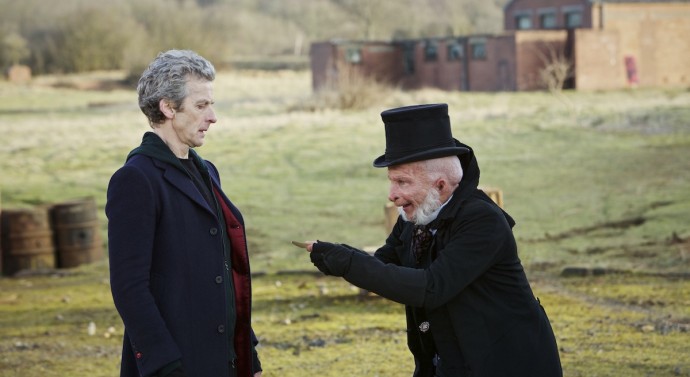
Of course, one can’t forget the Tivolian, Prentis. More funny than annoying, at least in small doses, the Tivolians take pride in being the most conquered race in the universe. While this is a fairly daft thing if you think about for more than a second, it does make for some nice comedy moments. Fitting then, that the actor under the makeup is British comedian Paul Kaye, who UK audiences know from, among other things, his character Dennis Pennis, and American audiences from his role as Thorus from Game of Thrones. Seeing Prentis alive is actually kind of weird considering the level of threat his Ghost provides, and the humor does dance a little close to the edge of adult a couple of times, but in the midst of the death all over this story, it is a nice break and contrast to the seriousness of the other characters.
And again, it’s Peter Capaldi who makes it all work. From the opening monologue to the knowing look at the camera at the end and everything in between, Capaldi is just so much fun to watch. We even get a hint of the mask slipping again, where the gruff and callous Doctor reveals how much he cares about Clara, not by saying the words, but by the tone of his voice and the way he holds himself when he talks to her on the phone. Sure, he’s still the man who will regard each death he can’t stop as a way to get information to save someone else, but Whithouse’s script gives Capaldi plenty of moments to show that he doesn’t like that he does it, or that it hurts those who survive. There are rumors that Capaldi is finding the pressures of shooting the show a little much, and that he’s leaving after the Christmas Special, and I really hope that those rumors are just so much nonsense, because I’m really enjoying his Doctor… t-shirts and hoodies and all.
![]()

